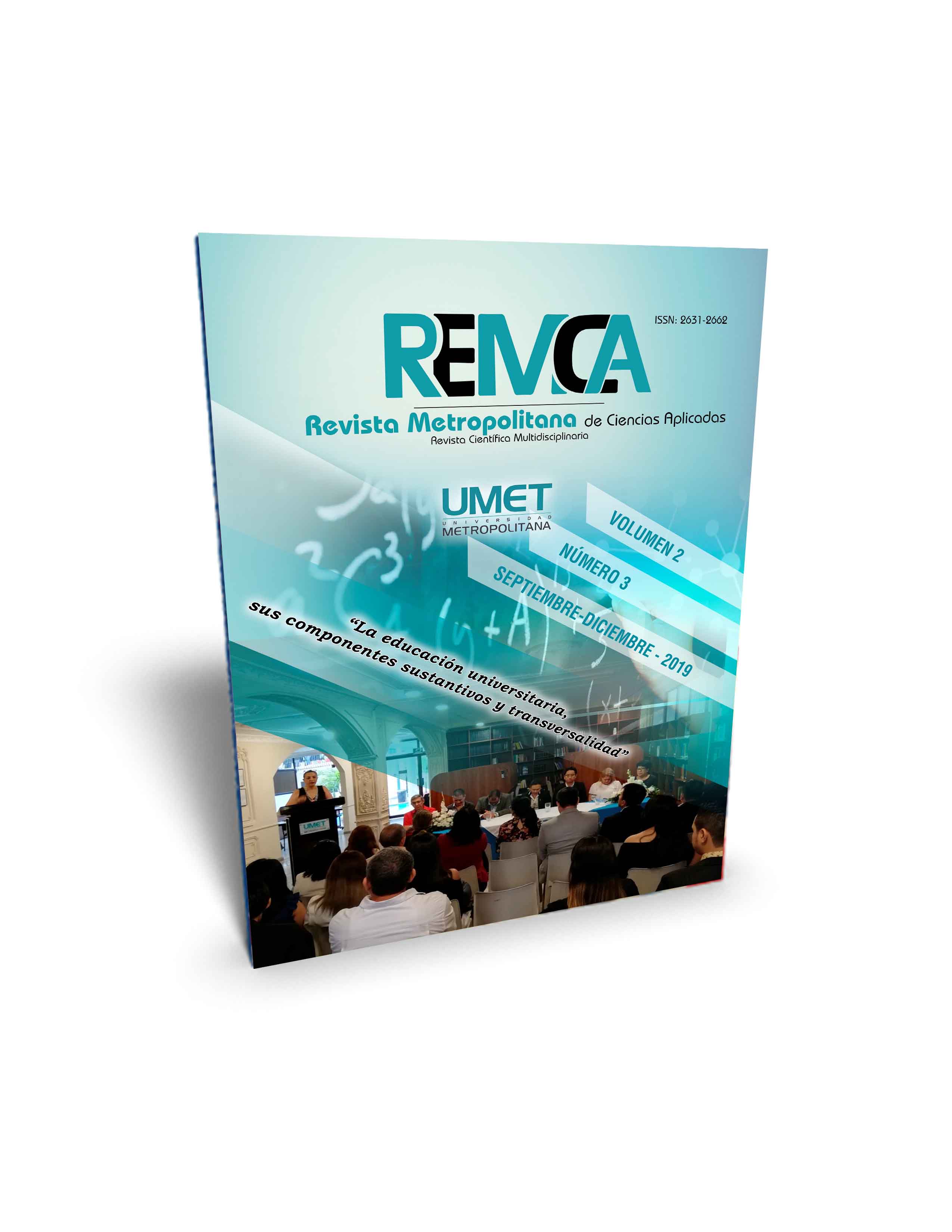University inclusion and equity of access to digital resources
DOI:
https://doi.org/10.62452/6t5jkc10Keywords:
Student social networks, shared learning, university inclusion, digital inclusionAbstract
The article is a synthesis of theoretical contributions that precede empirical research, in which the links that exist between the formation of student social networks, common learning and how to get involved in university cooperation are analyzed, taking as a starting point the inequalities generated by the digital divide, existing among students of higher education and, according to the access to digital resources. The methodology followed in the work is of a non-experimental nature, supported by consultations of theoretical data sources, and its objective is to identify the empirical precursors on which a pedagogical strategy aimed at achieving digital inclusion based on equity will be based. that the institution provides. Digital inclusion is linked to the goal of improving cognitive potential and is oriented to allow greater professional development, given the limitations that students often face regarding the use of technology to successfully meet their learning objectives. The study took place at the Metropolitan University of Ecuador.
Downloads
References
REFERENCIAS BIBLIOGRÁFICAS
Abreu, O. (2014). La dinámica sociedad, universidad, enseñanza-aprendizaje de la historia. Sarance, 31, 101-112. Recuperado de http://investigaciones.uotavalo.edu.ec/images/stories/pdfs/sarance_pdf/31.pdf
Eid, M. I., & AL-Jabri, I. M. (2016). Social networking, knowledge sharing, and student learning: The case of university students. Computers & Education, 99, 14-27. Recuperado de https://papers.ssrn.com/sol3/papers.cfm?abstract_id=2780765
Espinoza Cordero, C., Cañedo Iglesias, C., & Cañedo Iglesias, G. (2013). La UMET hacia una educación inclusiva desde su propio contexto. Madrid: Universidad Autónoma de Madrid.
González, R., Gasco, J., & Llopis, J. (2019). University students and online social networks: Effects and typology. Journal of Business Research, 101(C), 707-714. Recuperado de https://rua.ua.es/dspace/bitstream/10045/93087/2/2019_Reyes-Gonzalez_etal_JBusinessRes_preprint.pdf
Hrabackova, P., & Hruskova, J. (2015). Inclusive Learning Environment at the University of West Bohemia, Czech Republic. Procedia - Social and Behavioral Sciences, 174, 3814-3817. Recuperado de https://cyberleninka.org/article/n/622834.pdf
Hładkiewicz, W., & Gawłowicz, P. (2013). Information Technologies in the Postindustrial Society. Procedia - Social and Behavioral Sciences, (103), 500-505. Recuperado de https://www.sciencedirect.com/science/article/pii/S1877042813038111/pdf?md5=9b52ee713033e1b1c5afdba5e3d4d241&pid=1-s2.0-S1877042813038111-main.pdf
Jurado, M., Bravo, G., & Muñoz, I. (2016). La comunicación y los métodos de enseñanza aprendizaje en el licenciado en educación. Revista Sarance, 36, 141-151. Recuperado de http://revistasarance.uotavalo.edu.ec/index.php/rsarance/issue/download/21/cap%C3%ADtulo%206-36
Lepp, A., Li, J., & Barkley, J. (2016). College students' cell phone use and attachment to parents and peers. Computers in Human Behavior, 64, 401-408. Recuperado de https://www.infona.pl/resource/bwmeta1.element.elsevier-216e4af2-45da-358b-b138-9059876f15ae/tab/contributors
Liu, J., & Fang, F. (2017). Perceptions, awareness and perceived effects of home culture on intercultural communication: Perspectives of university students in China. System, 67, 25-37. Recuperado de https://www.academia.edu/40604335/Perceptions_awareness_and_perceived_effects_of_home_culture_on_intercultural_communication_Perspectives_of_university_students_in_China
Sanjamsai, S., & Phukao, D. (2018). Flow experience in computer game playing among Thai university students. Kasetsart Journal of Social Sciences, 39(2), 175-182. Recuperado de https://www.sciencedirect.com/science/article/pii/S2452315118301516
Smith, S., & Paracka, D. (2018). Global learning is shared learning: Interdisciplinary intercultural competence at a comprehensive regional university. International Journal of Intercultural Relations, 63, 17-26. Recuperado de https://www.sciencedirect.com/science/article/abs/pii/S0147176717303504
Taniguchi, T., Maruyama, Y., Kurita, D., & Tanaka, M. (2018). Analysis and classification of university students’ educational skills using a computer-assisted web-interviewing questionnaire. Procedia computer science, 126, 2021-2029. Recuperado de https://www.sciencedirect.com/science/article/pii/S1877050918312262
Vasileiou, K., et al. (2019). Coping with loneliness at University: A qualitative interview study with students in the UK. Mental Health & Prevention, 13, 21-30. Recuperado de https://repository.lboro.ac.uk/articles/Coping_with_loneliness_at_University_A_qualitative_interview_study_with_students_in_the_UK/9323042
Downloads
Published
Issue
Section
License
Copyright (c) 2019 Reinaldo Requeiro Almeida, Margarita Luque Espinoza de los Monteros, Roelvis Lafita Frómeta (Autor/a)

This work is licensed under a Creative Commons Attribution-NonCommercial-ShareAlike 4.0 International License.
Authors who publish in Revista Metropolitana de Ciencias Aplicadas (REMCA), agree to the following terms:
1. Copyright
Authors retain unrestricted copyright to their work. Authors grant the journal the right of first publication. To this end, they assign the journal non-exclusive exploitation rights (reproduction, distribution, public communication, and transformation). Authors may enter into additional agreements for the non-exclusive distribution of the version of the work published in the journal, provided that acknowledgment of its initial publication in this journal is given.
© The authors.
2. License
The articles are published in the journal under the Creative Commons Attribution-NonCommercial-ShareAlike 4.0 International License (CC BY-NC-SA 4.0). The terms can be found at: https://creativecommons.org/licenses/by-nc-sa/4.0/deed.en
This license allows:
- Sharing: Copying and redistributing the material in any medium or format.
- Adapting: Remixing, transforming, and building upon the material.
Under the following terms:
- Attribution: You must give appropriate credit, provide a link to the license, and indicate if any changes were made. You may do this in any reasonable manner, but not in any way that suggests the licensor endorses or sponsors your use.
- NonCommercial: You may not use the material for commercial purposes.
- ShareAlike: If you remix, transform, or build upon the material, you must distribute your creation under the same license as the original work.
There are no additional restrictions. You may not apply legal terms or technological measures that legally restrict others from doing anything the license permits.




